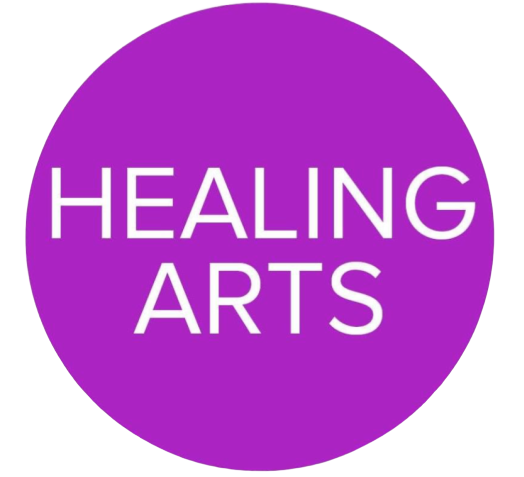The Science of Stress Relief
At Healing Arts NYC, we’re passionate about empowering you to manage stress holistically. Whether it’s through personalized chiropractic care or guidance on mindful living, we’re here to support your wellness journey.
-Dr. Alicia Armitstead
Stress is an inevitable part of life. Whether it stems from work deadlines, family responsibilities, or unexpected challenges, we’ve all felt its effects. But what’s happening inside your body when stress strikes, and more importantly, how can we manage it effectively? Understanding the physiological effects of stress and employing proven healing modalities can make a significant difference in your overall well-being.
What Happens When You’re Stressed?
To grasp the science behind stress relief, we first need to examine how stress affects our bodies. Imagine you’re about to give a presentation, and your heart starts racing, your palms sweat, and your breathing quickens. These reactions are part of the body’s “fight-or-flight” response—a survival mechanism designed to protect you from threats.
The Role of Cortisol
At the core of the stress response is cortisol, commonly known as the stress hormone. Produced by the adrenal glands, cortisol serves several essential functions, including regulating blood sugar, controlling inflammation, and managing energy. However, when stress becomes chronic, elevated cortisol levels can wreak havoc on your body.
High cortisol can lead to:
- Weight Gain: Especially around the midsection, as cortisol increases your appetite and cravings for sugary or fatty foods.
- Sleep Disruption: Too much cortisol can interfere with your natural sleep-wake cycle, leaving you fatigued during the day and wired at night.
- Weakened Immunity: Chronic stress compromises the immune system, making your body less able to fend off illnesses.
Chronic Stress and Long-Term Health Risks
When stress persists, the fight-or-flight response remains activated, placing ongoing strain on your body. Over time, chronic stress can contribute to a host of health problems, such as:
- Cardiovascular Issues: High blood pressure, increased risk of heart attack, and other heart-related conditions.
- Digestive Problems: Stress can disrupt gut health, leading to conditions such as irritable bowel syndrome (IBS).
- Mental Health Challenges: Stress robs your brain of essential resources, contributing to anxiety, depression, and memory issues.
Healing Modalities to Combat Stress
The good news is, your body has an incredible ability to heal and restore balance when given the right tools. Various healing modalities can help combat stress by addressing both its physical and emotional impacts. Here’s how you can support yourself.
1. Chiropractic Care
Chiropractic care isn’t just about back pain—it’s also a powerful way to help your body manage stress. Stress often causes muscle tension and misalignments in the spine. These physical reactions can exacerbate feelings of stress and discomfort.
Benefits of Chiropractic for Stress Relief
- Eases Muscle Tension: Gentle adjustments can release tension stored in the body, allowing your muscles to relax.
- Improves Nervous System Function: By addressing spinal misalignments, chiropractic care ensures proper communication between your brain and body, helping you feel calmer and more balanced.
- Promotes Endorphin Release: Adjustments can stimulate the release of feel-good hormones, elevating your mood naturally.
2. Acupuncture
Acupuncture, an ancient healing practice, involves the insertion of thin needles into specific points on the body to restore balance. Recent research highlights its effectiveness in reducing stress and promoting relaxation.
How Acupuncture Helps:
- Regulates Stress Hormones: Acupuncture lowers cortisol levels, supporting your body’s return to homeostasis.
- Enhances Energy Flow: By targeting energy or “Qi” imbalances, acupuncture helps your body process stress more effectively.
- Activates the Parasympathetic Nervous System: This part of your nervous system counteracts the fight-or-flight response, promoting deep relaxation.
3. Meditation
Meditation is one of the most accessible and cost-effective ways to reduce stress. This practice helps quiet the mind, allowing you to process stress more constructively.
Benefits of a Meditation Practice:
- Reduces Cortisol: Studies show that just 10-15 minutes of daily meditation can significantly reduce stress hormone levels.
- Improves Focus and Calm: Mindfulness techniques train your brain to stay present, preventing worries from spiraling out of control.
- Enhances Emotional Well-being: Regular meditation fosters a sense of gratitude, contentment, and inner peace.
How to Get Started:
If you’re new to meditation, try a guided app like Headspace or Insight Timer. Start with 5 minutes a day and gradually increase the time as it feels comfortable.
4. Nutrition for Stress Relief
Food plays a vital role in how your body responds to stress. A nutrient-rich diet supports brain function, balances hormones, and provides the physical energy you need to cope with life’s demands.
Foods to Include:
- Omega-3 Fatty Acids: Found in salmon, walnuts, and flaxseeds, these healthy fats support brain health and reduce inflammation.
- Magnesium-Rich Foods: Spinach, avocados, and pumpkin seeds are high in magnesium, which can ease muscle tension and promote calm.
- Probiotics: Foods like yogurt, kimchi, and sauerkraut support gut health, which is closely tied to your mood.
Foods to Avoid:
- Caffeine: While a coffee boost may feel good initially, too much caffeine can increase cortisol and anxiety.
- Refined Sugars: Sugar spikes can disrupt your energy levels, leading to a cycle of stress-driven cravings.
5. Practical Stress Management Tips
While the modalities above play a crucial role, incorporating simple daily practices can amplify their benefits. Here are a few practical tips to help you manage stress effectively:
- Move Your Body: Regular exercise, even 20-30 minutes of walking, releases endorphins and lowers cortisol.
- Prioritize Sleep: Aim for 7-8 hours of quality sleep per night. Consider a wind-down routine that includes reading, stretching, or a relaxing bath.
- Connect with Others: Socializing with loved ones can instantly lift your mood and help you gain perspective.
- Practice Gratitude: Write down three things you’re grateful for each day to shift your focus away from stressors.
Finding Your Path to Relief
Stress is a natural part of life, but it doesn’t have to take over. By understanding how stress impacts your body and incorporating healing modalities such as chiropractic care, acupuncture, meditation, and nutrition, you can reclaim a sense of calm and balance. Small, consistent efforts can make a world of difference.
At Healing Arts NYC, we’re passionate about empowering you to manage stress holistically. Whether it’s through personalized chiropractic care or guidance on mindful living, we’re here to support your wellness journey.
Take the first step today—your body will thank you.












